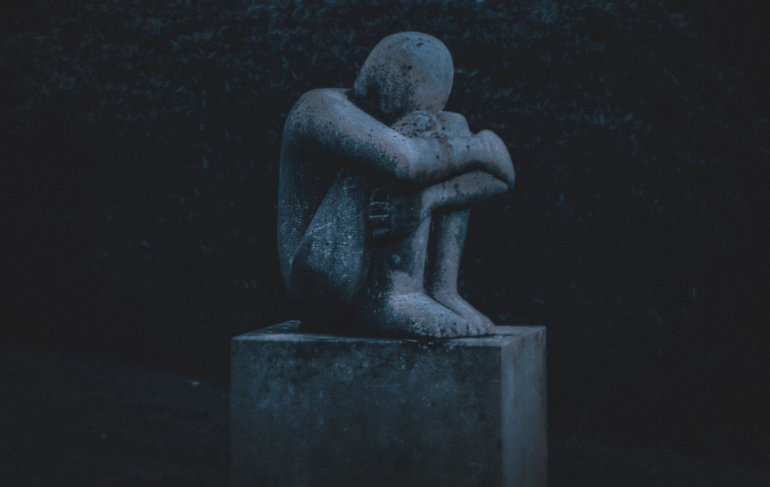
Coping With The Pain Of Meron: A Healthy Jewish Response To Tragedy
As the Jewish world continues to mourn the calamitous events that occurred in Meron last Thursday night on Lag B’Omer, leaving 45 dead and hundreds wounded, there are a variety of responses pouring out – many of them healthy and comforting and some of them less healthy. We, as a people, are no strangers to tragedy and we have beautiful approaches in our tradition to help people cope with unimaginable pain.
At the same time, in the aftermath of so many heartbreaks, some less than healthy trends have developed in our community. While I’m still in the middle of the grieving stage myself, seeing certain responses, especially that the Makom members are saying they are hearing. compounds the tragedy with guilt and shame. This made me want to speak up. Consulting with mental health professionals and Jewish educators and using Torah sources, here is my best understanding of the stages of approaching a tragedy that is both psychologically healthy and inline with Jewish sources, that should occur over a period of time:
- Shock and grief: VaYidom Aharon – “And Aaron fell silent.” After Aharon, Moshe’s brother, learned of the sudden passing of his two sons, he didn’t give a speech or pontificate. He didn’t look for meaning or point fingers. He was at a loss for words, as grief and pain overcame him. To properly process heart-wrenching news, we must just be with our feelings and let them ride through us, for as long as that takes.
- Questioning God: Zu haTorah v’zu ha’s’chara? In the Talmud we are told of a time where Moshe gets a chance to look generations into the future and sees a scene of Rabbi Akiva teaching Torah to his students. Moshe is amazed at Rabbi Akiva’s insights and Torah mastery. And so he asks God to show him Rabbi Akiva’s reward. One can only imagine what Moshe expected Rabbi Akiva would receive for all he had accomplished. But instead, Moshe beholds a ghastly scene: Rabbi Akiva is being burned alive at the stake by the Romans. Moshe Rabbeinu is horrified. Tortured. He exclaims to the Almighty, “This is his Torah and THIS is his reward?” Moshe Rabbeinu has the audacity to cry out to the Master of the Universe: “Hashem, how COULD you?!” Moshe Rabbeinu not only gives permission, but leads by example to tell us when we see inexplicable atrocities in the world, we can cry out to our Maker and scream, “I don’t understand.” God’s response to Moshe is essentially, “Silence, this is how I made the world.” Ultimately, we cannot know God’s ways. But in a healthy relationship, we have communication, and if we feel the need to put our questions to Hashem, we are encouraged to do so, as part of the process of processing tragedy.
- Not claiming to know why or tell others why: Unfortunately, too many people quickly run to not only to explain why this happened but assign blame to certain types of “sinners.” This is dangerous and destructive. We do not know God’s ways. Rabbi Yochanan said: “After the destruction of the Holy Temple the power of prophecy was taken from the prophets and given to the mentally ill and to children.” (Bava Basra 12). Unfortunately, not everyone has internalized this message. We are not prophets. We must not speak like we truly understand. In fact, the Talmud teaches us that if we start telling people the reason for why bad things happened, like Job’s friend did, we transgress the prohibition of onas daverim – oppressing another through harsh words. (Baba Metzia 58b)
- Honoring the fallen with personal introspection – “If they say the occurrence is part of how the world operates naturally… this is cruel, as it enables them to maintain their corrupt ways.” -Maimonides, Guide to the Perplexed. Every Jew is responsible for one another (Kol Yisrael areivim ze l’ ze.) Once we have processed our grief and taken our questions to God if need be, in time, we can do some personal introspection. If we come to know of a tragedy in our community, we have a responsibility to find a way to look inside and grow from it somehow. It is not because we know that our sins caused the tragedy, it is not because we know the message from God. But we know ourself. We can and Maimonides believes we should use the tragic events as a personal springboard to some sort of growth or introspection. This is a private matter and concerns no one but ourselves. This is not a matter of shaming or blaming, it is saying there is less light in the world due to this tragedy, and I will take it upon myself to add more light.
May Hashem comfort all the mourners in every corner of the world, may we hold each other up, increasing unity and love, and may we merit to see the coming of Moshiach and an end to tragedies, speedily in our days.
If you found this content meaningful and want to help further our mission through our Keter, Makom, and Tikun branches, please consider becoming a Change Maker today.







